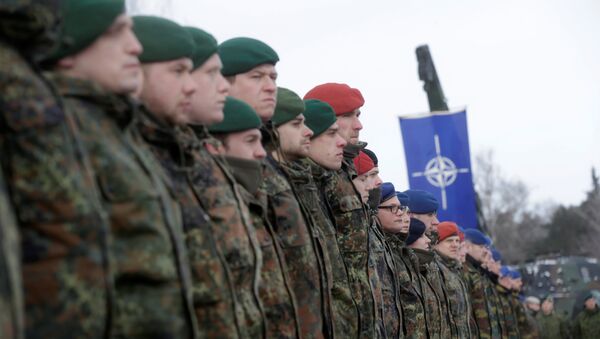MOSCOW (Sputnik) — The North Atlantic Treaty Organization (NATO) maintains its course toward refusing all types of cooperation with Russia while perpetuating the so-called Russian threat myth, Defense Minister Sergei Shoigu said Tuesday.
"As for our relations with NATO, the alliance's leadership maintains its previous policy of rejecting all forms of practical cooperation with us and continues to frighten itself of our threat," Shoigu said at a forum for young diplomats.
The minister listed a growing number of NATO drills in Eastern Europe, the Baltic Sea and the Black Sea, saying "they are often anti-Russian in character and focus."
"Intelligence activities of NATO countries around the Russian territory have intensified," Shoigu added, noting a nearly threefold increase of reconnaissance aviation activities along Russian borders in the past decade.
Shoigu noted that the US missile defense in Europe was at the level of initial operational capability, while the military budgets of NATO states stood at over $900 billion, "which is tens of times greater than the defense spending of Russia."
"Despite this, we are ready for establishment of an equitable dialogue with Brussels on the whole range of issues of global and regional security. We expect that the NATO-Russia Council which resumed its work in 2016 will promote this," Shoigu said.
According to the minister, Russia and NATO could be successful in jointly countering international terrorism, including Daesh which is banned in Russia.
NATO has been significantly increasing its presence in Eastern Europe after the eruption of the Ukrainian crisis in 2014 using alleged Russian interference in the Ukrainian internal affairs as a pretext, a claim Russia has repeatedly denied.
During the last NATO summit in July, NATO resolved to strengthen its military presence in Eastern Europe on a rotational basis with four battalions in Poland and in the Baltic nations. During the 2014 summit, NATO established a 5,000-strong Very High Readiness Joint Task Force in response to the alleged Russian threat.





